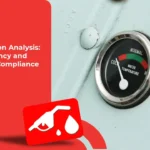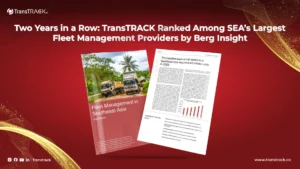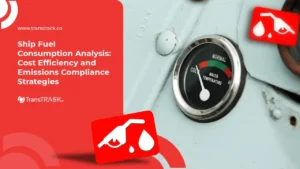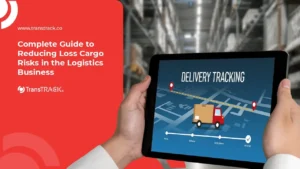Find Out How Logistics Aggregators Work and Some of Their Benefits!
Posted on November 6, 2023 by Nur Wachda Mihmidati

Aggregator is a term used in the world of information technology to describe an application or service that collects information or data from various sources and displays it in one place. In other words, aggregators help combine information from multiple sources for easy access and use.
Another common example is news websites or news aggregators, which collect articles from various news sources and display them in one place. Other examples of aggregators include price comparison websites, which collect information about product prices from various online stores and display them in one place for easy comparison.
Aggregators can also refer to companies that combine and sell products from various suppliers or manufacturers, such as large online stores like Amazon or Tokopedia. In this context, aggregators act as an intermediary between suppliers and consumers, and allow consumers to compare and purchase products from multiple suppliers in one place.
What is a Logistics Aggregator?
A logistics aggregator is a business model that aggregates shipping services from multiple parties or logistics companies and offers them to customers through a single platform or application. In this business model, the logistics aggregator acts as an intermediary between the shipper and the logistics company serving the shipment.
In a logistics aggregator system, customers can choose from several shipping options offered by several logistics companies that work with the aggregator. Customers can choose a delivery option based on cost, delivery time, location, and service quality. On the other hand, logistics companies that work with logistics aggregators can increase their market share and optimize the use of transport capacity, thereby increasing efficiency and reducing costs.
Examples of well-known logistics aggregator services in Indonesia are GrabExpress and GoSend. Through these platforms, shippers can book delivery services from multiple logistics companies that have partnered with GrabExpress or GoSend. This service makes it easy for shippers to compare shipping costs and delivery times from multiple logistics companies, so they can choose the most suitable option for their shipping needs.
What Logistics Aggregators Do
Logistics aggregators have several important functions in the logistics industry, including:
Connecting customers with a large selection of logistics service providers
Logistics aggregators help customers to select shipping options from various logistics companies that have partnered with the aggregator. This allows customers to compare the cost, delivery time, and service quality of multiple logistics companies so that they can choose the most suitable option for their needs.
Improves efficiency and productivity of logistics companies
By working with logistics aggregators, logistics companies can increase the use of transport capacity and optimize shipments. This can increase the efficiency and productivity of logistics companies and reduce operating costs.
Reducing logistics costs
By comparing shipping prices from several different logistics companies, customers can choose the most affordable shipping option. In addition, logistics companies that work with logistics aggregators can utilize the available transport capacity more efficiently, thereby reducing their operational costs.
Increased customer satisfaction
By providing multiple shipping options, customers can choose the most suitable shipping option for their needs. This can increase customer satisfaction and strengthen the relationship between the customer and the logistics company.
Simplify shipment management
By using a logistics aggregator service, shippers can monitor their shipments from a single platform. This makes it easier to manage shipments and minimize the risk of lost or damaged goods.
How Logistics Aggregators Work
Here are some of the stages of how a logistics aggregator works:
Registration
Logistics companies that wish to join a logistics aggregator must first register with the logistics aggregator. This process may include document submission, review, and approval.
System integration
Once successfully registered, the logistics company must integrate their system with the logistics aggregator’s system. This is done to enable the logistics aggregator to retrieve shipment information and send it to the logistics company corresponding to the shipper’s order.
Booking
Customers who want to ship goods can book shipping services through the logistics aggregator platform. Customers must enter shipping information such as weight, size, and shipping destination.
Service selection
Once the customer enters the shipping information, the logistics aggregator will display the shipping options available from several logistics companies that work with the logistics aggregator. Customers can choose the most suitable delivery option for their needs.
Pickup and delivery
Once the customer has selected the delivery option, the selected logistics company will pick up the goods and deliver them to the delivery destination according to the pre-arranged time and place.
Tracking
Customers can track their shipments through logistics aggregator platforms. This allows customers to know the position of their goods at every stage of delivery.
Payment
After the shipment is completed, the customer must pay the shipping fee according to the pre-set price. Payment can be made through the logistics aggregator platform.
Settlement
Once the payment has been made, the logistics aggregator will send the freight charges to the logistics companies involved in the shipment. The logistics companies will receive their payment after the logistics aggregator has collected the shipping costs from the customer.
Advantages of Using a Logistics Aggregator
No eCommerce company can ship orders on its own. To increase your profit margin while improving client happiness, you should work with a reliable partner. Third-party logistics may be a valuable service provider. It frees up resources such as labor and time, which can then be used for production or providing better services to your clients. They will provide your organization with a wide range of services such as fast delivery, on-time pickup, skilled employees, and multiple payment methods, as well as complete return services, secure packaging, and more. So many successful eCommerce businesses turn to logistics aggregators to improve organizational efficiency while optimizing their supply chain management.
1. Wide Reach
Logistics aggregators make it possible to transport goods over long distances. This not only allows you to grow your business, but also lets you build a large number of loyal clients. With logistics aggregators, you can reach thousands of consumers at once.
2. Multiple Courier Options
Many logistics aggregators have a network of at least ten other aggregators at their disposal. Various logistics aggregators are available through various platforms. You have the option to choose the most suitable aggregator for your company. You have the option to choose the most suitable supplier for your pickups and deliveries, as well as choose the most cost-effective alternative.
3. API Integration with Marketplaces and eCommerce Channels
APIs allow you to interact with websites and marketplaces quickly, and quite flexibly. APIs help retrieve information from your website to store orders for delivery and can be accessed from multiple platforms. This helps in the preservation of your orders and avoids potential losses from occurring.
4. Hassle-free Product Ordering and Returns
It is easy for logistics aggregators to get and handle all the orders because they have many service partners. One of the first steps you have to take is to identify a qualified business partner to run your business operations. Since the platform is fully unified, you can place return orders in the next step without going through the second step. If you are using a single operator, you should not limit return orders as pin code accessibility may be very difficult to manage.
5. Multiple Payment Options
Often, eCommerce companies don’t have a variety of payment options to accommodate customer needs. However, logistics aggregators can offer several different payment alternatives to choose from. You have the option to choose between cash on the spot or prepaid options, depending on the circumstances of your transaction.
Logistics aggregators are one of the innovations in the logistics industry that can help customers to choose the most suitable delivery option for their needs. By working with multiple logistics companies, logistics aggregators can enable customers to compare the cost, delivery time, and service quality of multiple logistics companies so that they can choose the option that best suits their needs. In addition, logistics aggregators can also improve the efficiency and productivity of logistics companies by optimizing the use of transport capacity and reducing operational costs.
However, for a logistics aggregator to function properly, logistics companies and customers must pay attention to several things, such as ensuring the quality of service from the logistics companies working with the logistics aggregator, choosing the right shipping option for their needs, and ensuring the safety of the goods during shipment. By paying attention to these things, logistics aggregators can provide benefits to all parties involved in the freight forwarding process.
For that, to make the process of shipping goods even easier, you can use TransTRACK’s Logistic Service Integrator. Through TransTRACK’s LSI, you can adjust everything such as truck size according to shipping needs, route optimization, real time tracking, report analytics in one dashboard, and E-POD. Use LSI TransTRACK and maximize your delivery process!
Recent Post
Topic :
 Bahasa Indonesia
Bahasa Indonesia









